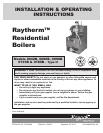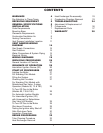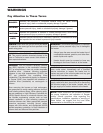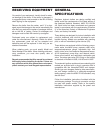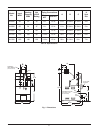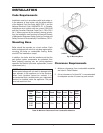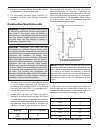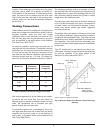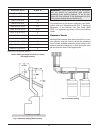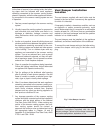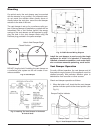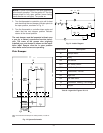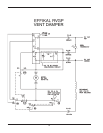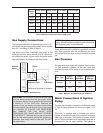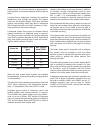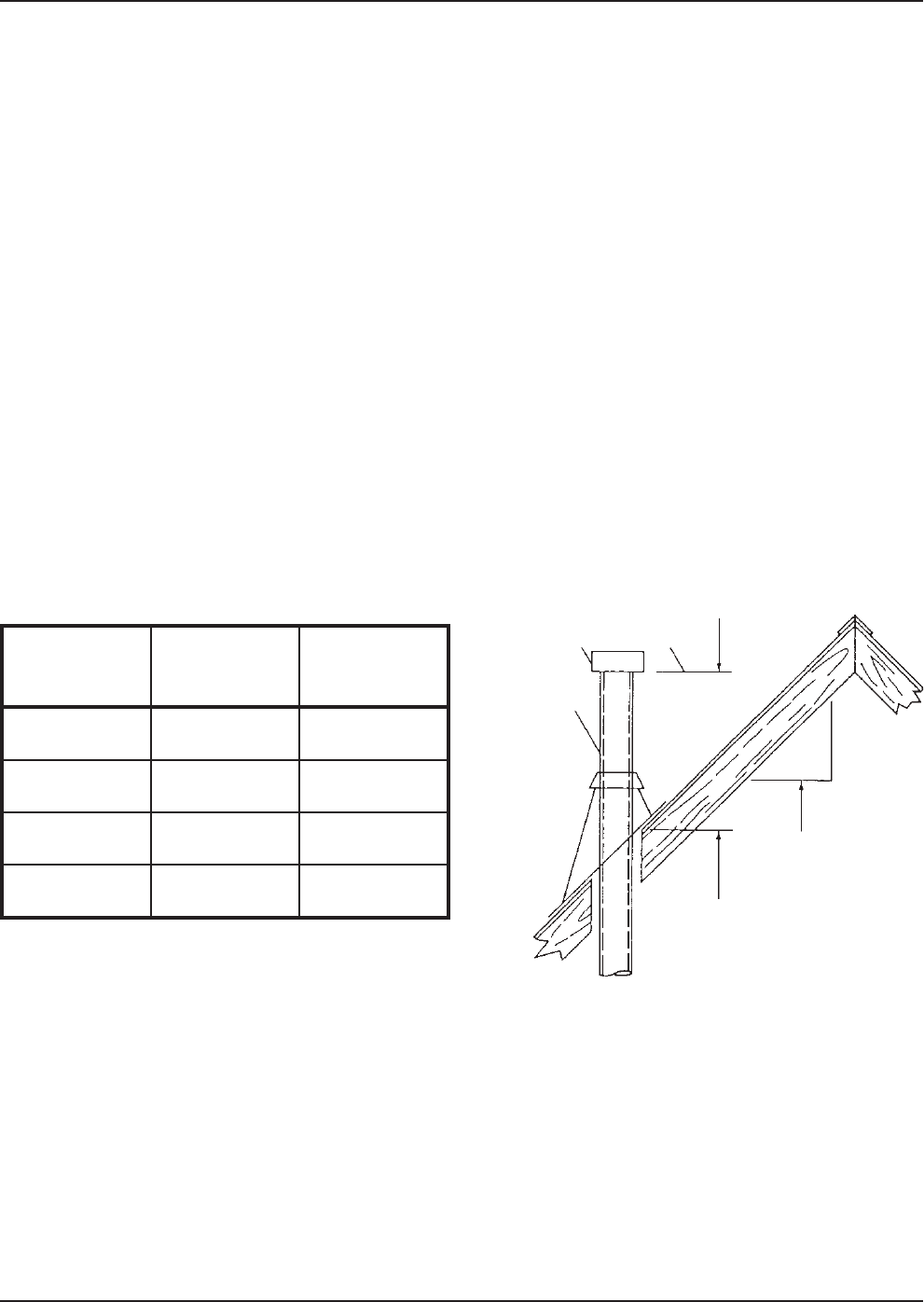
9
Location of the openings is the same as in the previ-
ous case - that is, within 12" of the top, and within 12"
of the bottom of the enclosure. If horizontal ducts are
used, the area must be doubled and the duct area
shall not be less than the area of the openings they
connect, and in no case shall the smallest dimension
be less than 3".
Venting Connections
These boilers have built-in drafthoods. Vent piping the
same size or larger than the drafthood outlet is recom-
mended; however, when the total vent height
(drafthood outlet to vent terminal) is at least ten (10)
feet, the vent pipe size may be reduced by one size
only as specified in the latest edition of the National
Fuel Gas Code, ANSI Z223.1.
As much as possible, avoid long horizontal runs of
vent pipe and too many elbows. If installation requires
horizontal runs, the vent pipe must have a minimum of
1/4 inch per foot rise and should be supported at not
less than five foot intervals. Maximum vent connector
horizontal length shall be 1-1/2 feet (18 inches) for
each inch of connector diameter as shown in Table E.
Gas vents supported only by the flashing and extend-
ing above the roof more than five feet should be
securely guyed or braced to withstand snow and wind
loads. We recommend use of insulated vent pipe
spacer through the roofs and walls.
For protection against rain or blockage by snow, the
vent pipe must terminate with a listed vent cap which
complies with the local codes or, in the absence of
such codes, to the latest edition of the National Fuel
Gas Code, ANSI Z223.1.
The discharge opening must be a minimum of two (2)
feet vertically from the roof surface and at least two (2)
feet higher than any part of the building within ten (10)
feet. Vent stack shall be at least five (5) feet in vertical
height above the drafthood outlet.
The vent cap location shall have a minimum clearance
of four (4) feet horizontally from, and in no case above
or below, unless a 4-foot horizontal distance is main-
tained, from electric meters, gas meters, regulators
and relief equipment.
The weight of the vent stack or chimney must not rest
on the boiler's drafthood. Support must be provided in
compliance with applicable codes. The boiler top and
drafthood must be readily removable for maintenance
and inspection. Vent pipe should be adequately sup-
ported to maintain proper clearances from combustible
construction.
Type "B" double-wall (or equivalent) vent pipe is rec-
ommended. However, single-wall metal vent pipe may
be used as specified in the latest edition of the
National Flue Gas Code ANSI Z223.1.
Model No.
Vent
Connector
Diameter (in.)
Max.
Horizontal
Length (ft)
0042 4 6
0066, 0090 5 7.5
0135 6 9
0180 7 10.5
Table E: Maximum Horizontal Length of Vent Pipe
Lowest Discharge
Opening
Listed Cap
Listed Gas Vent
X
12
Roof Pitch is X/12
H - Minimum Height from
Roof to Lowest
Discharge Opening
Fig. 4: Minimum Height from Roof to Lowest Discharge
Opening
Refer to Table F for detailed information



